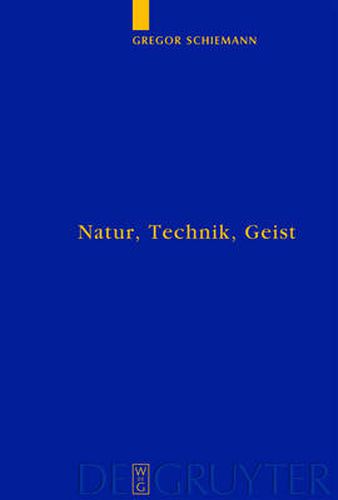Readings Newsletter
Become a Readings Member to make your shopping experience even easier.
Sign in or sign up for free!
You’re not far away from qualifying for FREE standard shipping within Australia
You’ve qualified for FREE standard shipping within Australia
The cart is loading…






Gregor Schiemann defends therelevance of Aristotle’s and Descartes’ concept of nature, which define nature in contrast to the non-natural. These traditional concepts however prove to be valid only within limited contexts.
In the first part of his book, the author demonstrates that both Aristotle’s view of nature as a counterpart to technology in the life-world and Descartes’ dualism of nature and mind with respect to our own experience of consciousness have remained guiding principles. Using Aristotle’s doctrine of the soul and Descartes’ mechanism as examples, Schiemann then shows that there is cross-fertilisation between these conceptual pairs. This natural-philosophical and epistemological study combines elements of analytical philosophy with approaches from phenomenology. It aims to contribute to a plural understanding of nature, whichabandons claims to universal validity.
$9.00 standard shipping within Australia
FREE standard shipping within Australia for orders over $100.00
Express & International shipping calculated at checkout
Gregor Schiemann defends therelevance of Aristotle’s and Descartes’ concept of nature, which define nature in contrast to the non-natural. These traditional concepts however prove to be valid only within limited contexts.
In the first part of his book, the author demonstrates that both Aristotle’s view of nature as a counterpart to technology in the life-world and Descartes’ dualism of nature and mind with respect to our own experience of consciousness have remained guiding principles. Using Aristotle’s doctrine of the soul and Descartes’ mechanism as examples, Schiemann then shows that there is cross-fertilisation between these conceptual pairs. This natural-philosophical and epistemological study combines elements of analytical philosophy with approaches from phenomenology. It aims to contribute to a plural understanding of nature, whichabandons claims to universal validity.